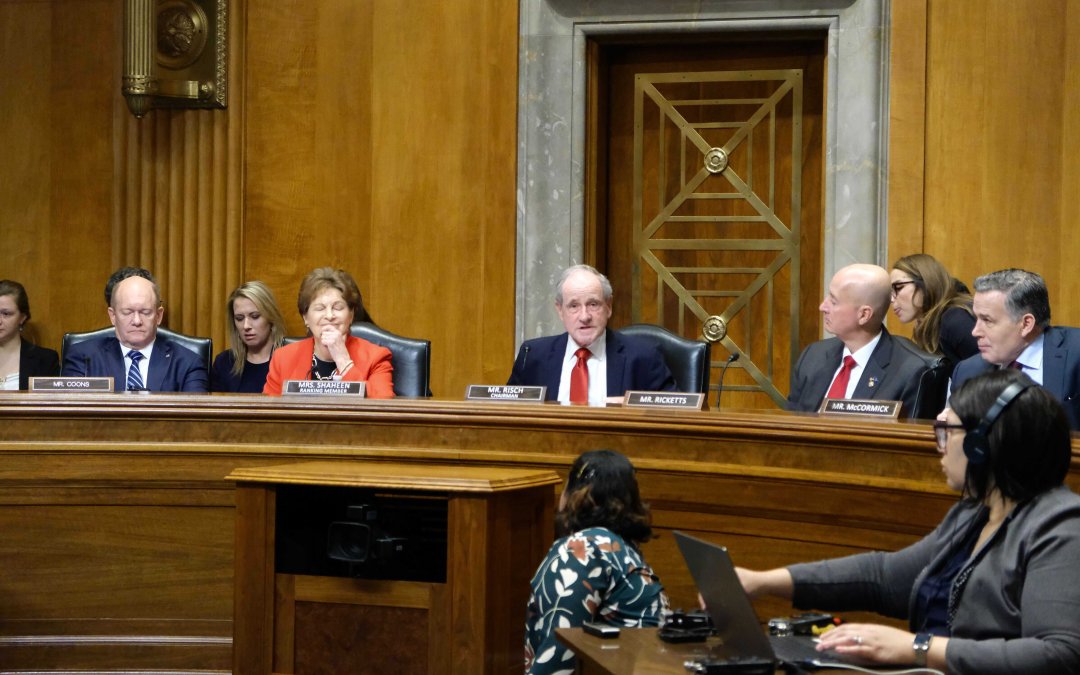WASHINGTON – The Senate Foreign Relations Committee met on Thursday to discuss China’s influence at home and abroad with committee Chairman James Risch (R-Idaho) calling the country, “the greatest, long-term threat to the United States.”
Both lawmakers and experts raised concerns about the U.S. government’s negligence and failure to keep pace with China politically, economically and militarily.
One specific topic of concern was China’s influence in American colleges and universities, with around 290,000 Chinese students studying in the U.S. in 2023, according to the Open Doors Report on International Educational Exchange.
“Colleges and universities are a really target-rich place for the Chinese. They show up with money, and, as pointed out here, colleges and universities respond to money,” said Risch.
Jeffrey Stoff, founder of the Center for Research Security and Integrity said that universities have financial incentives and operations that are at odds with U.S. national and economic interests. According to his testimony, the primary goal of academia is “attracting sustaining revenue sources from anywhere and anyone,” which has enabled China to exploit the open systems of U.S. research institutions.
However, Joshua Kurlantzick, a senior fellow at the Council on Foreign Relations, told the Medill News Service that is not the case. “I don’t think universities are accepting anyone from anywhere. Each university has certain standards of who they’ll accept, whether Americans or non-Americans.” he said.
Sarah Spreitzer, Vice President and Chief of Staff for Government Relations at the American Council for Education said she would “strongly disagree with the idea that [American institutions] are only in search of revenue.” She said institutions of higher education have been engaging with policymakers and federal security agencies to better understand these threats.
“I think higher education is very aware of some of these issues. We continue to work with our policymakers to balance those national security concerns while also allowing qualified, interested international students come to the United States to study at our institutions,” she said.
During the hearing, Risch said all Chinese students are “agent[s] of the Chinese Communist Party” because they return to China upon graduation. In fact, many students return to China because their student visa status requires them to leave the U.S.
“Once they finish their program of study, they only have a set number of days that they can remain in the U.S. before they’re required to return to their home country,” Spreitzer said.
Factors such as consular and visa barriers, rising U.S. crime statistics and a feeling of unwantedness in the U.S. have contributed to a decrease in the number of Chinese students in the U.S by more than 20 percent since 2019, according to the Washington Post.
Spreitzer said countries like Australia and Canada may provide alternatives with better bridges between getting a student visa and working after graduation.
Dr. Melanie Hart, Senior Director of the Global China Hub at the Atlantic Council said keeping the “student pipeline open” is in U.S. national interest and the government should support American students studying in China to “fill gaps in needed U.S. government China expertise.”
“We need a scalpel for this, not a sledgehammer,” she said.
Kurlantzick saw an additional benefit. “There are pros and cons of having Chinese students but a pro would be they get to see the U.S. for themselves and not how the CCP portrays it,” he said.
Dartmouth College Associate Professor Dr. Jennifer Lind further cautioned that U.S. policymakers should ensure that their responses to China uphold U.S. values, as she highlighted the millions of Chinese American citizens who are negatively impacted.
“As we get frustrated that an authoritarian society is exploiting our free one, while we protect ourselves against Chinese influence operations in the ways recommended here, we must also honor our own values,” she said. “As we formulate our responses to Chinese malign influence operations, U.S. leaders should be thinking not only about this negotiation with Beijing, but also about whether our responses uphold our own values.”

